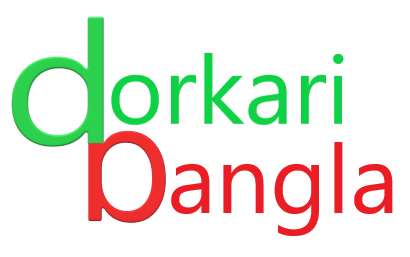
Introduction to IELTS
The International English Language Testing System, commonly known as IELTS, is a globally recognized test designed to assess the English language proficiency of non-native speakers. It plays a crucial role for individuals aiming to study or work in countries where English is the primary language. Distinctively, IELTS measures the four key language skills: listening, reading, writing, and speaking. Through this assessment, test-takers are provided with scores that range from 1 to 9, reflecting their English language abilities. This structured scoring system facilitates universities, employers, and immigration authorities in making informed decisions based on the candidates’ proficiency.
More than just a test, IELTS serves as a bridge for non-native speakers to global opportunities. High scores on the IELTS exam can significantly aid in gaining admission to universities in English-speaking nations, securing job offers, and meeting the language requirements set by various immigration agencies. As a result, an increasing number of individuals are opting to take this test, underscoring its importance in today’s interconnected world.
IELTS is administered by two prominent organizations: the British Council and IDP Education. Both organizations are internationally recognized and ensure that the test is standardized, fair, and reliable. While both entities offer IELTS testing across many countries, there may be slight differences in the registration processes, locations, and available test dates depending on the organization chosen. Regardless of the chosen institution, the objective remains the same: to provide an accurate evaluation of English language abilities, enabling a pathway to academic and professional goals for prospective test-takers.
Overview of Test Types Offered
The International English Language Testing System (IELTS) is a widely recognized assessment designed to evaluate English language proficiency. Both the British Council and IDP, two of the primary test providers for IELTS in Bangladesh, offer two main types of tests: the Academic and the General Training formats. Understanding the differences between these formats is crucial for candidates to select the most suitable option based on their personal goals.
The IELTS Academic test is primarily aimed at individuals who wish to pursue higher education or professional registration in an English-speaking environment. This test measures a candidate’s ability to understand and use complex academic language, focusing on skills such as reading comprehension, writing essays, and listening to lectures. The Academic format is recommended for students planning to enroll in universities or colleges and those seeking professional licenses in fields like medicine and engineering.
In contrast, the IELTS General Training test is designed for candidates who are planning to undertake non-academic training or gain work experience in an English-speaking country. It assesses practical English skills required in everyday social and workplace contexts. The General Training format includes tasks and topics that candidates are likely to encounter in their day-to-day lives or during employment, making it more suitable for migrations or vocational training. This format is often preferred by individuals who wish to immigrate to countries like Canada, Australia, or the UK.
Ultimately, the choice between the Academic and General Training formats will depend on the individual’s aspirations—whether they are pursuing academic excellence or seeking employment opportunities abroad. Adequate preparation for the selected test type is necessary to maximize the chances of achieving the desired band score.
IELTS Test Fees: British Council
The IELTS test fees charged by the British Council in Bangladesh are structured to accommodate various elements of the examination process. As of October 2023, the standard registration fee for the IELTS test is approximately BDT 27,000. This fee covers the core examination components, which include four parts: Listening, Reading, Writing, and Speaking. It is vital for candidates to note that this fee is subject to change, and it is advisable to confirm the latest fee structure by visiting the official British Council website or contacting their office directly.
In addition to the standard registration fee, candidates may incur additional costs for various services that the British Council offers. For instance, if a candidate requires special assistance or accommodations during the test, there may be extra fees associated with these requests. Moreover, late registration can lead to increased costs; candidates who do not register within the stipulated timeframe will find the late registration fee to be higher than the standard rate. This serves as an important reminder for test-takers to plan their registration adequately ahead of their intended test date.
When it comes to payment methods, the British Council facilitates a variety of options to ensure ease for the candidates. Payments can typically be made through bank transfers, credit cards, or even through the British Council’s online platform. Utilizing these payment methods helps streamline the registration process, making it user-friendly for individuals seeking to take the IELTS test. Therefore, it is crucial for candidates to be aware of these fees and payment methods to avoid any last-minute challenges during their registration process.
IELTS Test Fees: IDP
The IELTS test conducted by IDP in Bangladesh has a well-defined fee structure that prospective candidates should be aware of. As of October 2023, the registration fee for the IELTS test, including both Academic and General Training versions, is set at approximately BDT 17,000. This fee covers the entire testing process, which includes the listening, reading, writing, and speaking modules. It is important to note that while this fee is standard, it may be subject to change, so candidates are encouraged to verify the most current information on IDP’s official website.
In addition to the base registration fee, candidates may encounter several additional costs depending on their specific requirements. These may include fees for rescheduling the test, which typically ranges from BDT 2,500 to BDT 5,000, as well as fees for additional score reports sent to universities or institutions. It is essential for candidates to consider these potential extra expenses when budgeting for their IELTS preparation.
Payment methods for the IELTS test through IDP are relatively flexible. Candidates can choose to pay via bank transfer, online payment through the IDP website, or in person at designated IDP offices. The various payment options make it convenient for candidates to complete their registration process. This aspect, combined with the structured fee framework, positions IDP as a competitive choice alongside the British Council for IELTS testing. Furthermore, it is advisable for candidates to keep abreast of any promotions or discounts that IDP may offer from time to time, as these can reduce overall costs significantly. Understanding the complete fee structure will facilitate better planning and preparation for test-takers in Bangladesh.
Comparative Analysis of Fees
The International English Language Testing System (IELTS) is a pivotal assessment for individuals seeking to study, work, or migrate to English-speaking countries. In Bangladesh, two prominent organizations administer the IELTS: the British Council and IDP. A thorough analysis of their fee structures reveals significant insights for prospective test-takers.
As of October 2023, the registration fee for the IELTS test generally ranges between 20,000 to 27,500 Bangladeshi Taka, depending on the service provider. The British Council typically charges around 27,500 Taka, inclusive of all testing components, while IDP’s fee is marginally lower, resting around 25,000 Taka. While the cost difference may seem minimal at first glance, it can influence prospective test-takers’ decisions, especially when budget constraints are a factor.
Moreover, both organizations may offer various services that impact their overall fees. For instance, the British Council frequently incorporates additional resources into their fee structure, such as comprehensive online preparation materials and practice tests, which can enhance the test-taker’s experience. IDP, on the other hand, may provide flexibility in scheduling and more accessible locations in certain areas, which could be more convenient for some candidates.
Additionally, prospective candidates should consider that IELTS fees can vary slightly based on the chosen test type, whether it be the Academic or General Training version. Therefore, it is advisable to verify the specific test details and associated costs directly on the respective organizations’ official websites. Understanding these nuances may aid candidates in making informed decisions regarding their IELTS preparations based on their financial capabilities and preferences.
Additional Costs and Services
When preparing for the IELTS examination in Bangladesh, it is essential for candidates to be aware of the various additional costs and services provided by the British Council and IDP. These offerings can significantly enhance the test preparation experience but may also lead to unexpected expenses beyond the standard test fees.
Both organizations offer a range of optional services designed to support candidates in their preparation journey. For instance, the British Council provides various English language courses tailored to IELTS test-takers, focusing on the skills required for achieving a high score. These courses often come with a fee structure that varies based on duration and frequency. Similarly, IDP also offers preparatory resources, including workshops and tutorials that aim to familiarize candidates with the test format and assessment criteria. Such services can be instrumental for candidates looking to gain confidence and improve their performance.
In addition to preparatory courses, both the British Council and IDP offer practice materials. These materials typically include sample tests, study guides, and online resources designed to provide candidates with a comprehensive understanding of the IELTS test format. While these study aids are invaluable for effective preparation, it is important to note that they may incur additional costs, depending on the specific resources utilized.
Moreover, candidates should also consider extra expenses related to test day services. This may include transportation to the test center, food, and accommodation if traveling from remote areas. Certain centers may also offer additional services such as early check-in or special accommodations, which may involve extra fees. Understanding and accounting for these additional costs is crucial for candidates planning their IELTS journey.
Refunds and Policies
When considering the IELTS examination in Bangladesh, it’s essential to understand the refund policies set by both the British Council and IDP. Candidates often seek clarification regarding eligibility for refunds in various scenarios, such as illness or unforeseen circumstances, as well as the process to follow for either a refund or rescheduling their test dates.
The British Council has a clearly defined refund policy. Candidates are eligible for a full refund if they withdraw their application before the registration deadline. In cases where a candidate needs to cancel their test due to medical issues or other valid reasons after this deadline, they must provide relevant documentation. The British Council assesses these cases individually and may apply a partial refund charge based on the circumstances. It is recommended that candidates inform the British Council as soon as possible, using the designated contact methods outlined on their website.
IDP also has a structured refund policy. Similar to the British Council, candidates can receive a full refund if they cancel their booking before the registration cutoff. If a cancellation occurs after the deadline, candidates can request a refund, though the outcome may depend on specific terms and conditions set forth by IDP. Documentation supporting the request may be required. IDP advises that candidates reach out to their customer service promptly for assistance with any inquiries related to refunds or test transfers.
Both organizations emphasize the importance of adhering to their policies to ensure smooth processing of refunds or rescheduling requests. Candidates should carefully review all terms and conditions when registering, as this will facilitate a more streamlined experience should any changes be necessary. Understanding these procedures can aid candidates in both their preparations and in navigating any potential scheduling conflicts that may arise.
How to Register for the IELTS
Registering for the IELTS (International English Language Testing System) is a straightforward process that can be completed online through the British Council or IDP (International Development Program). The following steps outline how to navigate the registration process efficiently.
Firstly, candidates should determine which organization, British Council or IDP, they prefer to register with. Both institutions offer the IELTS exam, but their test dates, locations, and fee structures may vary. It is advisable to visit their respective websites to review the available options and any specific requirements they might have.
Once a candidate selects the preferred organization, the next step is to create an account on the platform. Candidates will need to provide personal information, such as their name, date of birth, and contact details. This account will be crucial for managing the registration process, as well as accessing results and other resources related to the IELTS exam.
After setting up an account, candidates should choose their test type: IELTS Academic or IELTS General Training, depending on their purpose for taking the exam. Subsequently, they must select a test date and location that suits their schedule. It is important to note that certain dates may fill up quickly, so early registration is recommended to ensure availability.
When candidates have finalized their test date and location, they will be prompted to pay the required registration fee. The payment can typically be made via credit/debit card, and it is important to retain confirmation of the payment for reference. Following payment, candidates will receive an email confirming their registration and details about the exam day.
Lastly, it is beneficial for candidates to regularly check their email for any updates or additional information that may be sent by the registration body. By following these steps, individuals can successfully register for the IELTS with either the British Council or IDP, setting themselves up for a rewarding examination experience.
Conclusion
Understanding the IELTS fee structure in Bangladesh is crucial for prospective test-takers. Both the British Council and IDP offer distinct advantages and services, making it essential for candidates to weigh their options carefully. The fee can vary depending on multiple factors, including the test type and any additional services selected, such as preparation courses or rescheduling options. This variability underscores the importance of budgeting appropriately for the IELTS examination process.
Furthermore, while the British Council and IDP consistently strive to provide high-quality testing experiences, individuals should consider their specific needs when selecting between these two providers. Factors such as location, test dates, and available facilities could significantly influence one’s decision. Each organization has its own unique registration process and customer support services that may cater better to different preferences and circumstances.
By thoroughly reviewing the fee structure and associated services of both the British Council and IDP, candidates can make informed decisions that align with their goals and circumstances. This careful consideration will not only help in avoiding unexpected costs but also enhance the overall preparation and test experience. Ultimately, informed choices lead to more successful outcomes in the IELTS journey. Prospective test-takers should take the time to research and choose wisely, ensuring that they are investing in a testing experience that best meets their needs.


